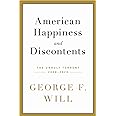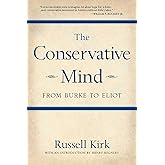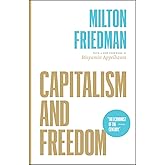Buy new:
-60% $13.99$13.99
FREE delivery June 2 - 6
Ships from: BILLY BUDD'S BOOKSTORE Sold by: BILLY BUDD'S BOOKSTORE
Save with Used - Good
$8.92$8.92
Ships from: Amazon Sold by: ICTBooks

Download the free Kindle app and start reading Kindle books instantly on your smartphone, tablet, or computer - no Kindle device required.
Read instantly on your browser with Kindle for Web.
Using your mobile phone camera - scan the code below and download the Kindle app.



 Audible sample
Audible sample The Conservative Sensibility Hardcover – June 4, 2019
Purchase options and add-ons
For more than four decades, George F. Will has attempted to discern the principles of the Western political tradition and apply them to America's civic life. Today, the stakes could hardly be higher. Vital questions about the nature of man, of rights, of equality, of majority rule are bubbling just beneath the surface of daily events in America.
The Founders' vision, articulated first in the Declaration of Independence and carried out in the Constitution, gave the new republic a framework for government unique in world history. Their beliefs in natural rights, limited government, religious freedom, and in human virtue and dignity ushered in two centuries of American prosperity. Now, as Will shows, conservatism is under threat -- both from progressives and elements inside the Republican Party. America has become an administrative state, while destructive trends have overtaken family life and higher education. Semi-autonomous executive agencies wield essentially unaccountable power. Congress has failed in its duty to exercise its legislative powers. And the executive branch has slipped the Constitution's leash.
In the intellectual battle between the vision of Founding Fathers like James Madison, who advanced the notion of natural rights that pre-exist government, and the progressivism advanced by Woodrow Wilson, the Founders have been losing. It's time to reverse America's political fortunes.
Expansive, intellectually thrilling, and written with the erudite wit that has made Will beloved by millions of readers, The Conservative Sensibility is an extraordinary new book from one of America's most celebrated political writers.
- Print length640 pages
- LanguageEnglish
- PublisherGrand Central Publishing
- Publication dateJune 4, 2019
- Dimensions6.55 x 2.05 x 9.35 inches
- ISBN-100316480932
- ISBN-13978-0316480932
Book recommendations, author interviews, editors' picks, and more. Read it now.
Frequently bought together

Customers who viewed this item also viewed
Editorial Reviews
Review
"A blockbuster -- if a book so thoughtful and learned and graceful can be called a 'blockbuster.'"―Jay Nordlinger, National Review
"When you read a work as wise, incisive and superbly written as this one, you rightly assume it was produced by a first-rate mind."―The Wall Street Journal
"A monumental achievement. The Conservative Sensibility is not a 'Washington book' about partisan politics--it's much bigger than that. It's a career capstone that will stir your soul with its passionate reminder of what conservatism really means. Buy it, read it, share it."
―Senator Ben Sasse, New York Times-bestselling author of Them and The Vanishing American Adult
"Staggeringly good. Easily one of the best books on American Conservatism ever written."―Jonah Goldberg
"Embodies the ideal of thoughtful, learned conservatism....Deeply erudite....Fascinating."―Fareed Zakaria, The Washington Post
"The Conservative Sensibility ... is an argument about human history, epistemology, culture, religion, politics and constitutionalism, and not another vehicle for soon-dated Trump hagiography or hatred.... Its account of how the presidency has taken over the legislature in the modern era is essential to understanding the extreme danger that a figure like Trump now poses to core constitutional principle."―Andrew Sullivan, New York Times Book Review
"Wonderful... [Will's] magnum opus... elegant."
―Hugh Hewitt
"A wonderful book [that will] be read for a long time."―Dana Perino, Fox News
"Sums up a lifetime of thinking about politics and culture."
―The New York Times
"Brilliant."― The Los Angeles Times
"Excellent... [T]here is a sense of finality in The Conservative Sensibility, as though Will is offering his ultimate statement if not his last word.... Will has produced one of the best books about American conservatism ever to have been written."―Kevin D. Williamson, The Washington Examiner
"[A] strong affirmation of inalienable individual rights as set forth in the Declaration of Independence and the U.S. Constitution.... Will, a Goldwater/Reagan/Buckley Republican, has left the party. But he might argue that the party has left him, and this book can serve as a blueprint for how it might return."―John R. Coyne, Jr., Washington Times
"A remarkable summation of Will's political thought after a half-century in Washington. It's the sort of book that, when read by a young person in high school or college, might change his life."―Matt Continetti, Politico "Playbook"
"A richly documented history of and argument for a wider embrace of conservative political values."―Kirkus Reviews
"A clarion call for substantive thinking, at a time when Americans are hungry for strong leadership and a renewed debate for the soul of our country."―"Therefore, What?" Podcast
"The summa of a lifetime's worth of thinking about politics.... Will's good sense, power of reasoning, historical knowledge, and stylistic flair on full display here.... Masterful."―Commentary magazine
"[A] magnum opus..... Will still beats all his rivals in his ability to combine high thinking with a shrewd capacity to understand day-to-day American politics.... It is hard to think of any of today's angry young "movement" conservatives surviving in journalism for fifty years, as Mr. Will has, and still having enough to say to produce a big book at 78."―The Economist
"The Conservative Sensibility is George Will's definitive declaration.... Admirers of Will - I plead guilty - now have what amounts to a definitive statement, a summation of his remarkable career in journalism and politics.... A deep and sustained reflection on American conservatism.... There is nothing worse than a predictable columnist, and Will is anything but predictable. One reads him not only for his prose but also for the chance to observe a great and restless intellect.... Here, then, is George Will's task: to remind Americans of our unique heritage by connecting present debates and public figures to our nation's fundamental ideas, disagreements, problems, and statesmen..... Such is the education that awaits the reader of this beautiful, graceful, profound book."―Matthew Continetti, National Review
"[Will is] one of the most consequential thinkers in the history of the conservative movement... To say that Will wrote a brilliant book brings new meaning to understatement.... A great read.... Will's discussion of the Constitution positively sizzles... Unputdownable."―John Tammy, Forbes
"[A] magisterial assessment of contemporary life and its foundations."―Richard Vetter, Forbes
"The conservatively inclined reader, interested in the history of the United States and the politics of the present era, will find in the author's reflections much to enjoy and from which to learn....In order to reverse the direction of events, someone must formulate an alternative to it-which George Will has done in this fine book."
―The New Criterion
About the Author
Product details
- Publisher : Grand Central Publishing
- Publication date : June 4, 2019
- Edition : First Edition
- Language : English
- Print length : 640 pages
- ISBN-10 : 0316480932
- ISBN-13 : 978-0316480932
- Item Weight : 1.9 pounds
- Dimensions : 6.55 x 2.05 x 9.35 inches
- Best Sellers Rank: #258,218 in Books (See Top 100 in Books)
- #210 in Political Conservatism & Liberalism
- #272 in Political Commentary & Opinion
- #372 in History & Theory of Politics
- Customer Reviews:
About the author

Discover more of the author’s books, see similar authors, read book recommendations and more.
Customer reviews
Customer Reviews, including Product Star Ratings help customers to learn more about the product and decide whether it is the right product for them.
To calculate the overall star rating and percentage breakdown by star, we don’t use a simple average. Instead, our system considers things like how recent a review is and if the reviewer bought the item on Amazon. It also analyzed reviews to verify trustworthiness.
Learn more how customers reviews work on AmazonCustomers say
Customers find the book to be a good read with crisp prose and articulate writing style. They describe it as fascinating and thought-provoking, with one customer noting how it de-mystifies American history through many little-known historical anecdotes.
AI-generated from the text of customer reviews
Select to learn more
Customers appreciate the writing style of the book, describing it as crisp and articulate, with one customer noting how it presents complex observations in a concise manner.
"...on economics, culture, education and foreign policy are insightful and lucid. Quotations are more frequent here as it is well trampled turf...." Read more
"...While also making a strong case for viable conservative “sensibilities” and direction. He is up front regarding his atheism...." Read more
"This is a many-faceted book with several overlapping theses regarding the ideological basis of the constitution, differing viewpoints regarding the..." Read more
"...I suspected that, but George Will's superb narrative convinced me by tying various things together, from natural law to the Declaration of..." Read more
Customers find the book to be a good read, with one customer describing it as erudite and another noting it is to the point.
"...little-known historical anecdotes that help make the books such a rewarding read...." Read more
"...But they are deft and to the point, and Will's analyses surpass the boiler plate responses usually generated...." Read more
"Will presents a logical and thorough case for conservatism...." Read more
"...By itself, that's all well and good. The book is sometimes informative, occasionally enlightening and characterized by refreshingly staid and..." Read more
Customers find the book thought-provoking and fascinating, with one customer noting how it de-mystifies American history and provides many little-known historical anecdotes.
"...the book, and as in any George Will tome, there are many little-known historical anecdotes that help make the books such a rewarding read...." Read more
"...Also the picaresque metaphors, ironic understatements, and measured judgments as well, free of the malicious ad hominem assaults and out-of-context..." Read more
"...George Will is a political scholar of the first order, and his knowledge of our Founding is always a revelation...." Read more
"...As a college history major p, the truth of American history is de-mystified and made plain...." Read more
Reviews with images
READ INSTEAD IRVING BABBITT'S "DEMOCRACY AND LEADERSHIP" (still in print)
Top reviews from the United States
There was a problem filtering reviews. Please reload the page.
- Reviewed in the United States on June 21, 2019Governments do not exist to dispense rights, but to secure the natural rights that we hold just by virtue of our humanity. That proposition was a lodestar for the Founders when they established our country in the late eighteenth century during the Enlightenment. Over the past century, though, states have grown all over the West, including in the United States, and our founding principle has undergone steady erosion. In "The Conservative Sensibility," George Will makes the case for the classical liberalism of the Founding.
Will describes how our founding principles championed by James Madison differ from the progressivism that was mainstreamed by Woodrow Wilson and implemented steadily since, and also from European conservatism, which defended throne, altar, and existing structures. American conservatism seeks instead to conserve the classical liberalism of the Founding and the institutions created to put it into practice.
It is often said that constitutions elsewhere limn what government can do either for you or to you, but that our Constitution limits powers and gives citizens, in Will's words, "rights against the polity, rights that protect a zone of individual sovereignty in which the inherent dignity of the individual is expressed in the free exercise of agency." Separation of powers and constantly shifting factions were to prevent any group or groups from establishing tyranny.
Since the early twentieth century, however, thought that was not American at all but that originated in continental Europe, especially Germany, has produced policies that have been grafted onto our institutions, with gradual loss of liberty and the attendant problems that have ensued. These changes have affected both the daily lives of ordinary people but also our institutions—the author examines our government, lamenting presidential supremacy and the decline of Congress. He also looks at the history of the judiciary and offers his opinion on its proper role.
A classically liberal society requires free markets, dynamism, and growth, as well as work and production on the part of the populace, and Will rightly upbraids the tendency of many to falsely claim that they are "disabled" and remain on relief. There is no stomach in either party in either Washington or in the voting booths that send politicians to Washington to implement the serious spending cuts needed to prevent our debt-to-GDP ratio from eventually growing to the degree that it produces a massive fiscal crisis or currency crisis. Will insists that conservatives must take the politically perilous action of telling the full truth about the budget and spending.
The record of both parties regarding spending has been abysmal, but Republicans have at least cut taxes and regulations in recent years, as well as eliminated the odious individual mandate in the 2010 health insurance law. During the 2009 – 2016 period there was a seemingly endless cascade of Democratic scandals, including Solyndra, Fast and Furious, the IRS targeting scandal, the Hillary Clinton email scandal, using the FBI to spy on the challenging-party presidential campaign of 2016, the NSA and VA scandals, et al, et al, et al, et al, et al.
Since 2017 Republicans have run essentially scandal-free government but also have had to endure even more Democratic perfidy in the form of the bogus "collusion" story (the Democrats were the actual colluders in 2016) and the feral, almost unspeakably shameful attempt to keep Justice Kavanaugh off the Supreme Court. There are serious internal debates in both parties, but for now, the Republicans are light-years closer to the principles set forth in "The Conservative Sensibility."
Will urges some measure of reticence in foreign policy, and in education, he urges that our system strive to produce critical and independent thinkers—he sees the study of history to be especially beneficial toward that end. As an agnostic conservative, I greatly enjoyed the chapter describing Darwin, evolution, and how one can be both secular and conservative. One of the wisest admonitions in the volume urges conservatism to take care that it can appeal all over the country, including to secular urbanites, as the irreligious percentage of the population, already growing, inevitably climbs further in coming decades.
There are many references to the Founders and to Lincoln through the book, and as in any George Will tome, there are many little-known historical anecdotes that help make the books such a rewarding read. You won't agree with everything in this volume, but "The Conservative Sensibility" is not to be missed if you are on the Right—those who care about ideas would profit from what might be George Will's magnum opus, whether they are classical liberals like Will, populists, or those who essentially remain Reaganites but with a few populist leanings.
- Reviewed in the United States on September 1, 2019...but this isn't an authorized version approved by conservative traditionalists, evangelists, militarists & culture warriors. Also it's a provocation to vested supporters of a very dysfunctional status quo, so expect a variety of negative reviews.
George Will's finely reasoned retrospective, begins in the introduction with the Revolutionary War victory at Princeton in 1777 (a few days after Trenton) to show that pivotal events have no inevitable outcomes; that daunting odds can be overcome. He has in mind a comparable conflict which may require analogous acts of rebellion and courage: Saving American liberty from a powerful and steadily growing threat such as King George III never posed--the imperceptible daily submersion of our traditional constitutional protections by the gathering weight of interests and driven by politics of incumbency--both being consequences of the century-long, and accelerating, evisceration of our 1797 constitution.
The crisp prose, the concise rendition of complex observations into a few judicious words are there as in his Washington Post columns. Also the picaresque metaphors, ironic understatements, and measured judgments as well, free of the malicious ad hominem assaults and out-of-context quotations favored in today's feral political dialog. The pundit's art of condensing complex ideas into single page essays isn't easy to sustain in a 600 page book, but he has. Clarity of mind allows this brevity. Murky ideas or obfuscating rhetoric won't survive long in clear text.
The first 4 chapters--over 200 pages--eloquently contrast essential differences between conservative and progressive conceptions of human nature, American history and law, and record the erosion of liberty and civil society through the gradual conversion of constitutional limits and separation of powers into elastic loopholes from which an imperial presidency and a vast, coercive federal bureaucracy have emerged and metastasized. Liberals (who once supported constitutional limits) are largely passed by: Though the name persists, they have been effectively displaced or absorbed into the progressive movement which resists most constitutional restraints on government and effectively dominates public political discussion, academia, and--unequally--both political Parties.
The next 4 chapters on economics, culture, education and foreign policy are insightful and lucid. Quotations are more frequent here as it is well trampled turf. But they are deft and to the point, and Will's analyses surpass the boiler plate responses usually generated. Much of his focus is on how we arrived on this slippery slope and the intellectuals who blazed the downhill path.
The ninth chapter (subtitled, "conservatism without theism") will distress many conservatives for his denial that religious belief is indispensable to the nation or morality, and declaring himself an atheist, to boot. His logic for this is utterly airtight and interestingly bookended by excerpts from Huckleberry Finn. Christopher ("God is not Great") Hitchens he ain't.
The last chapter outlines what conservatives must accomplish if the currently ascendant national trends are to be halted and reversed. This seems dauntingly difficult: They must recover by persuasion the founders' fading legacy of freedom from an electorate of short memory and long accustomed to Beltway generosity funded by an aggressively growing national debt. The author has a lot of sound ideas for this. A pivotal victory analogous to 1777 Princeton may--or may not--occur before the bankruptcy clock chimes, or America elects a strongman/woman with an ambitiously coercive agenda for a progressive Utopia.
Bottom line: Is this a book for you? If politics, economics, history or philosophy interest you This book will challenge your intellect, even if--especially if--you disagree with part or even all of it. I was surprised to find myself agreeing so consistently with a self-described conservative--a persuasion I abandoned many decades ago. I expect I will reread this book someday.
- Reviewed in the United States on July 6, 2020Will presents a logical and thorough case for conservatism. By peeling away the thin veneer that serves as progressivisms justifications, Will exposes the failed socio-political outcomes of the post New Deal era. He credibly ties the on-going spiral of failures to pandering liberal efforts. While also making a strong case for viable conservative “sensibilities” and direction.
He is up front regarding his atheism. So those who shun conservatism’s modern day tie-up with evangelical Christianity will find Will making his entire case for conservatism, without that linkage.
- Reviewed in the United States on February 14, 2025Used but in excellent condition. Arrived on time and well packed. Would purchase from this seller again.
- Reviewed in the United States on November 9, 2024Most people who say they are conservative are not, and have no idea what that term means. George Will, in the book, posses the question, "what are you trying to conserve?" Read the book for his answer
Top reviews from other countries
 Patrick CimoliniReviewed in Canada on January 29, 2021
Patrick CimoliniReviewed in Canada on January 29, 20215.0 out of 5 stars A good read for progressives.
I am a left of center person politically. The Conservative Sensibility gives a person like me a understanding of how principled conservatives view the world. I share many of the fundamental principles that George F. Will writes about. Where we might gently quibble lies in how we apply the principles to our political and personal lives. The book is an excellent read for anyone who has the sensibility of democracy being a messy business where many seemingly conflicting ideas must be weighed and considered seriously from many points of view before action is taken.
 Nancy in KitchenerReviewed in Canada on January 9, 2020
Nancy in KitchenerReviewed in Canada on January 9, 20205.0 out of 5 stars Gift recipient delighted
I gave this book as a Christmas gift and have been hearing positive reviews daily, since. It is apparently a mindful read, and I am told I will probably have to wait till next Christmas for my turn. Good things are worth waiting for.
 JCJoffreReviewed in Canada on December 30, 2020
JCJoffreReviewed in Canada on December 30, 20205.0 out of 5 stars Great read for great minds
George Will at his best. A must read for Conservative minded people. A great learning experience for those ambiguous about Conservatism. Other light weights are referred to Barak Obama’s A Promised Land















